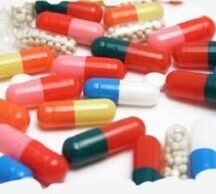
In modern medicine, prostatitis is considered to be the most common urological disease. Various causes can lead to the disease, both rooted in bacterial infections and in a person’s lifestyle.
Achieving remission of the chronic form and getting rid of acute pain is a difficult process that consists of a whole series of procedures and measures.
To do this, it is important to take certain medications to treat prostatitis in men, these are prescribed when the first signs of the disease appear. In this article, we look at which of the modern drugs on the market are the most effective and fastest.
It is worth noting that this disease is sometimes misidentified with another pathology of the prostate adenoma. And although the causes and mechanisms of these diseases are different, in some cases their treatment has similar properties.
Signs of prostatitis in men
In men, the first signs of prostatitis begin with uncomfortable and painful urination. You need to get up 1-2 times a night to use the toilet. After a while, shooting or pulling pains appear in the perineum and above the pubic area, it is likely that there is pain in the penis and anus.
Urination will be quick and painful, the urine will become cloudy. Pain may occur during defecation. Sometimes the patient notices the release of white secretion drops in the morning. Body temperature rises to 38 degrees.
Prostatitis is an insidious disease of modern urology. Men tend to listen for a long time and hide their symptoms and only go to the doctor if the pain simply becomes unbearable. This is a frivolous approach to health. The consequences of this behavior can be very complex, including infertility and organ inflammation.
It is also worth noting that the symptoms of prostatitis also indicate other dangerous diseases such as cystitis, benign prostate cancer, bladder cancer.
What medications are used to treat prostatitis?
One skilled in the art may prescribe one (or more) of the following formulations based on the condition of the male body:
- Suppositories for rectal administration. Such drugs improve metabolism.
- Injections. It promotes the rapid entry of the drug into the body, stimulates the immune and vascular systems.
- Non-steroidal anti-inflammatory drugs (NSAIDs) - prevent inflammatory reactions.
- Instillations. During this type of treatment, the medicine is given directly to the destination by your doctor.
- Microclysters. They are considered a folk method. Herbal infusions and decoctions are used as medicine, based on temperature and healing effects. Performed before bedtime, the prostate gland after the procedure should not be overstressed and hypothermic.
- Tablets. Most often, the treatment of prostatitis with tablets involves the use of broad-spectrum antibacterial drugs. Especially in cases where the specific pathogen has not been identified.
- Alpha-adrenergic blockers - have a similar effect by blocking alpha-adrenergic receptors in the sympathetic nervous system.
Each drug has its own characteristics and may be suitable for a patient but not. The most effective treatment for prostatitis is a drug that the doctor selects specifically for the patient, taking into account their individual characteristics and the course of the disease.
Antibiotics
If prostatitis is found to be caused by bacteria, an antibiotic should be prescribed. Above all, drugs with a broad spectrum of action are chosen, i. e. those that can be killed by several microbes at the same time.
Antibiotics are usually represented by three groups of drugs:
- Fluoroquinolones;
- tetracyclines;
- Penicillins.
Suppositories are often used during treatment (they are inserted into the anus). Such drugs are effective in relieving pain and have antibacterial effects. The greatest penetration into body tissues is distinguished by injection solutions. They have a systemic effect, stimulating the immune system and the vascular system.
Analgesics
This class of drugs makes life easier for many patients. However, their dosage should be checked with your doctor.
Alpha blockers
A group of drugs that relaxes the smooth muscles of the urethra (bladder) and bladder, thereby promoting better urine output.
The effect of alpha-blockers is not to treat prostatitis, but to eliminate the unpleasant symptoms caused by the disease. In this case, the symptom is the development of acute or chronic urinary retention.
Muscle relaxants
Their effects are similar to those of alpha-blockers, but they target the perineal area, which is constantly increased in tone during prostatitis. Reduce pressure in the pool area, reduce pain.
Medicines that improve blood circulation
With any form of the disease, a violation of blood circulation is always detected, which leads to stagnation and does not allow the tissues of the organ to be restored. Therefore, drugs that improve blood circulation should be used in complex treatment.
Phytotherapeutic drugs
It is based on natural herbs. They reduce the edema and inflammation of the prostate, prevent stagnation, and restore the outflow of physiological fluids. Pumpkin seeds, creeping fruits and sabal-based preparations are popular.
Vitamins
Taking vitamins is necessary to strengthen the body’s immune system, which suffers greatly from prostatitis. The chronic course of the disease strongly affects a person’s defense functions, so vitamins are taken along with the main drug therapy.
Effective drugs for prostatitis
There is no single best drug for prostatitis that can treat all men, regardless of the cause of the inflammation of the prostate adenoma. Because an antibacterial drug, even if at least threefold, cannot help a patient with a parasitic form of infection, and vice versa.
There are many effective agents for treating inflammation of the prostate, but after reading the reviews you should not prescribe them yourself, even if there are no contraindications at all.
































